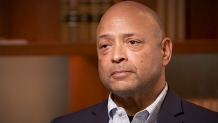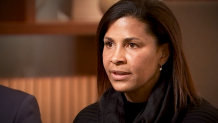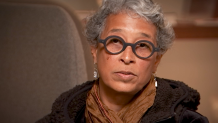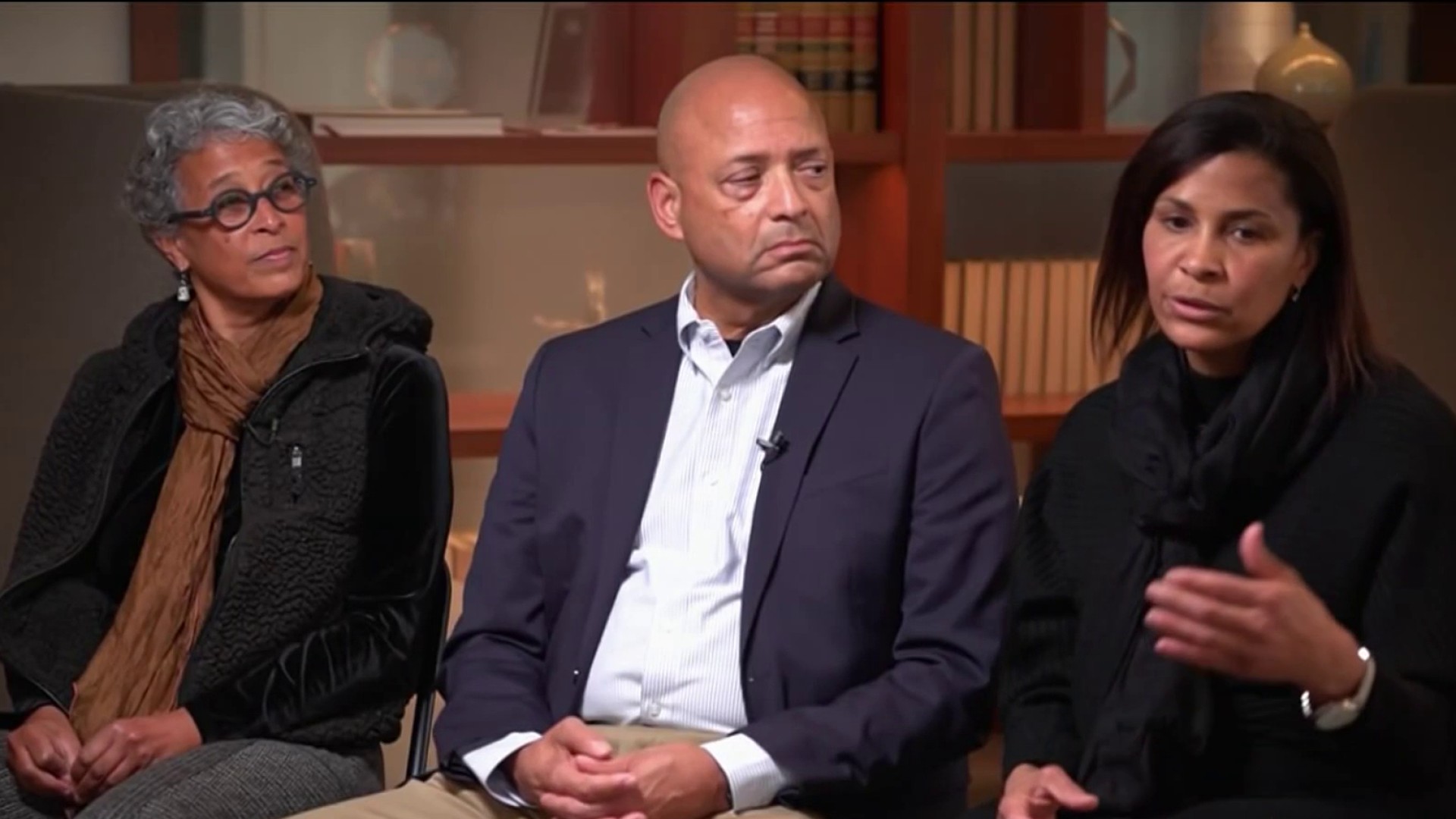A trio of Black physicians, who formerly worked at Sutter Health hospitals in Northern California, say the large hospital system has discriminated against Black doctors for years.
The physicians, Dr. Yinka Davies, Dr. Pringl Miller, and Dr. Kevin Smothers, worked at Sutter Health in different departments, during different time periods over the past 20 years, but are now sharing stories about the alleged discrimination they experienced throughout their careers within the company.
The allegations come in the wake of a racial discrimination lawsuit targeting Sutter, filed by Dr. Omondi Nyong’o, a Black ophthalmologist who continues to work for Sutter Health’s Palo Alto Medical Foundation.
Nyong’o’s suit alleges Sutter “disrespects, undermines, and disciplines African American staff and doctors” due to racial bias. The suit also includes accounts of alleged racial bias from seven other anonymous Black doctors at Sutter.
“It’s insidious here within Sutter,” said Smothers, who served as Chief Medical Officer for the Sutter Health hospital in Sacramento up until last year.
Smothers said, at the time, he was the only Black person holding that position at any Sutter hospital.
“There was a toxic environment that just permeated,” said Davies, a pediatric gastroenterologist who also worked for Sutter Health’s flagship hospital in Sacramento.
Davies left Sutter in 2013 after a 10-year career and started her own private practice.
“All of a sudden you’re being told that you’re difficult to work with,” Davies said. “So-and-so thought you were yelling, or they were scared of you.”
Get a weekly recap of the latest San Francisco Bay Area housing news. >Sign up for NBC Bay Area’s Housing Deconstructed newsletter.
Dr. Pringl Miller, who practiced as a general surgeon at Sutter Health’s campus in Novato for four years, between 2002 and 2006, said she also faced criticism over her perceived demeanor.
“Similar to Dr. Davies, I was labeled a ‘disruptive’ physician,” Miller said in a group interview with all three doctors. “If I was complaining about something that happened, like unsterile instruments on the back table, I became the problem.”
Davies said she experienced similar treatment when advocating for patients or requesting services, like when she asked for an ultrasound on a patient before performing a liver biopsy.
“How does this happen?” Davies asked. “Like, how does this happen to all of us?”
A spokesperson for Sutter Health declined to comment on the accusations made by each doctor.
Last month, however, in response to NBC Bay Area’s reporting on Dr. Nyong’o’s lawsuit, a Sutter spokesperson said in a statement:
“We are committed to fostering a diverse and inclusive workforce, as well as a healthcare environment where all are treated equitably, with dignity and respect, and provided the opportunity to reach their full potential…”
Dr. Kevin Smothers

Among the three physicians who spoke to NBC Bay Area, Smothers worked at Sutter most recently, leaving the company last year after he said he was passed over for promotion.
While serving as Chief Medical Officer, Smothers said his supervisor, the hospital’s CEO, told him he was being groomed to become the next CEO. Smothers, however, said that same boss later told him the plan was abruptly nixed by higher-ups at Sutter Health, and the job was given to a white woman.
“Someone who had never had any experience working in a large, complex system,” Smothers said. “It was clear to me that it had to be race that was determining why this person was put in that position.”
Sutter would not comment on Dr. Smothers’ allegations.
According to the lawsuit filed by Nyong’o, Black doctors account for less than 1% of physicians within the ranks of Sutter’s leadership, including CEOs, C-suite executives, and hundreds of other positions. Sutter declined to comment on the accuracy of those figures, nor would it release racial demographics for its 12,000 physicians.
“Although they claim to be the organization of diversity, equity, and inclusion, when you look at the face of Sutter, that’s not the case,” Smothers said.
Dr. Yinka Davies

During her 10 years at Sutter, Davies said she felt targeted by leadership at every step, but it was never about the quality of care she provided patients.
“All of that takes a toll on you,” Davies said. “It was never about your care, but always they would find little things to escalate to a completely different level.”
During her time at Sutter, Davies alleges one of her supervisors secretly had a hidden camera installed in her medical supply closet, which she said only five other employees regularly used.
She said a hospital maintenance worker, who told her about the camera’s existence, said he installed it while she was on vacation.
“He takes me into the administrator’s office, which is just around the corner, and next to her desk was a live feed of this camera,” Davies said. “This is Sutter. I don’t feel safe there.”
Davies left Sutter in 2013, but in the decade since, she believes the company has done little to curb discrimination based on Nyong’o’s lawsuit and accounts she’s heard from other doctors, she said.
“It’s the same story being told over and over again,” Davies said. “You know this isn’t isolated.”
Dr. Pringl Miller

On its website, Sutter Health boasts about its record of fostering equity, noting that it has an “unyielding commitment to diversity and inclusion.”
When asked about the quote, Miller said Sutter and the entire medical field still haven’t done enough to address discrimination towards underrepresented minorities.
“I think what matters is how people feel they’ve been treated and not what they say they’re doing,” Miller said.
Miller says she was labeled “disruptive” by leadership for raising patient care concerns during her time as a surgeon at Sutter’s Novato hospital between 2002 and 2006. She also said she wasn’t afforded the same respect given to her colleagues.
While white male surgeons were always called “doctor,” Miller said, hospital staff frequently called her by her first name.
Miller said the repeated discrimination she’s suffered in the medical field is, in part, what inspired her to create Physician Just Equity, a nonprofit focused on providing support to doctors and medical students experiencing discrimination in the workplace.
In just two years, Miller said the group has received help requests from more than 100 physicians across the country.
“If underrepresented docs, black doctors, are being structurally eliminated from the workforce, that means that it’s going to impact the communities that they serve,” Miller said.
New research shows that a lack of representation in the medical field could be a matter of life and death. A recent study, published last month in the Journal of the American Medical Association, found when counties have more Black doctors, Black residents there tend to live longer.
“If you’re not really trying to become more diverse and inclusive, the patients feel it,” Davies said. “And that’s the bigger picture of this.”
Watch our entire investigative series
- Part 1: Lawsuit alleges racism ‘permeates' Sutter Health
- Part 2: Black doctors allege discrimination at Sutter Health
- Part 3: Sutter CEO ‘disturbed' by discrimination claims in NBC Bay Area report, orders reforms
- Part 4: Senior Investigative Reporter Bigad Shaban discusses discrimination claims against Sutter
- Part 5: Black doctors accuse Sutter of discrimination, CEO's response met with skepticism
Contact The Investigative Unit
submit tips | 1-888-996-TIPS | e-mail Bigad




